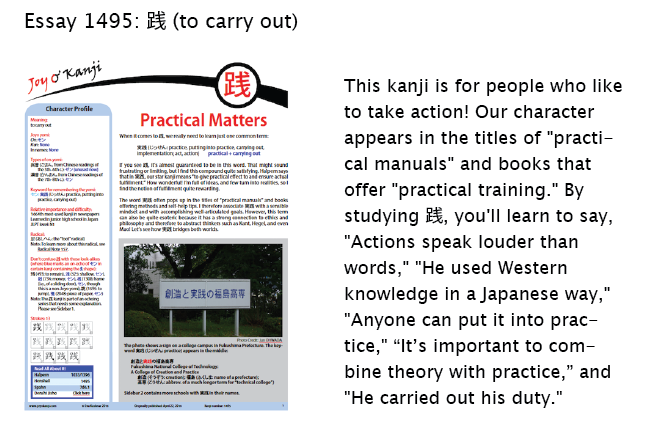A Guaranteed Good Time
Today I have a series of multiple choice questions for you, mostly about terms related to body parts or medical issues. Those topics just about guarantee a good time, don't they!?
What do you think the following words could mean:
1. 手口 (てぐち) hand + mouth
a. living hand-to-mouth
b. putting one's foot in one's mouth
c. covering one's mouth when laughing
d. criminal technique
2. 臨床家 (りんしょうか)
to be present at, on the point of, face to face with + bed, floor + person suffix
a. clinician
b. a patient
c. person visiting a patient
d. delivering last rites
3. 十二指腸潰瘍 (じゅうにしちょうかいよう)
12 (1st 2 kanji) + fingers + intestine + to fester + swelling
a. prostate exam
b. intestinal polyp
c. duodenal ulcer
d. swollen hands in relation to a gut disorder
4. 限界集落 (げんかいしゅうらく) limit, bound (1st 2 kanji) + village (last 2 kanji)
a. depopulated village with most inhabitants being senior citizens
b. the dullness of village life
c. ancient walls demarcating village limits
d. limits of the resources available to villagers
I'll block the answer with a preview of the newest essay:

Okay, here we go!
1.d. 手口 (てぐち: hand + mouth) means "modus operandi; criminal technique; trick." The suffix -口 sometimes means "the way one does something," as in やり口 (やりくち: the way one does something) and 語り口 (かたりくち: the way one tells a story).
2.a. 臨床家 (りんしょうか: to be present at + bed + person suffix) means "clinician," referring mainly to doctors. The breakdown now reflects what the characters actually mean in this term.
3.c. 十二指腸潰瘍 (じゅうにしちょうかいよう: 12 (1st 2 kanji) + fingers + intestine + ulcer (last 2 kanji)) means "duodenal ulcer"! By the way, 潰 can mean "to ulcerate," which must be its role in 潰瘍 (かいよう: ulcer).
What an unexpected answer! It's even more surprising that "duodenal" has the same breakdown as the Japanese word! That is, "duodenum" (the first portion of the small intestine) is a shortened form of the Latin term intestīnum duodēnum digitōrum, meaning "intestine of twelve fingers' length." The Greek physician Herophilus (c. 353–280 BCE) gave the duodenum that name (or rather the Greek equivalent, dodekadaktylon) in reference to the length of that part. More than a millennium later, Gerard of Cremona (an Italian who died in 1187) turned the term into Latin. From medieval Latin it traveled into Middle English. The Latin term also made its way into Dutch, then Japanese. And it's only after I encountered it in Japanese that I examined its roots. I love how language crisscrosses the globe—and the years!
4.a. 限界集落 (げんかいしゅうらく: limit, bound (1st 2 kanji) + village (last 2 kanji)) means "depopulated village with most inhabitants being senior citizens," also called a "marginal village." I saw a terribly dull documentary about one such Japanese village. I wanted to like it, but that just wasn't possible.
Speaking of senior citizens in Japan, I know one who was anything but dull and who kept producing incredible writing until he died in 2013 at age 88. I'm talking about the inestimable observer of Japanese life, Donald Richie. I liked a recent Japan Times article about him, particularly this part:
An observation Richie made of the Japanese in 1958 ... might well serve as his own epitaph to writing: “This most pragmatic of people do not count hopes or intentions as accomplishments. A man is what he does. After his death, he is what he has done.”
I don't know that I've ever noticed that cultural belief, and my proofreader can't begin to confirm that the Japanese think this way, but it's an intriguing idea. And how coincidental to have spotted that quotation just before posting essay 1495 on 践, which is all about turning intentions into accomplishments.
Have a great weekend!

Comments